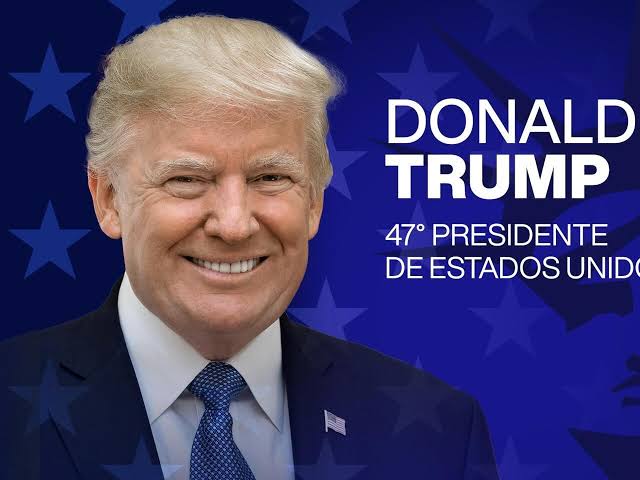
The Beginnings of Donald Trump
Donald John Trump was born on June 14, 1946, in Queens, New York. The son of real estate mogul Fred Trump, Donald was introduced to the business world at an early age. He studied economics at the University of Pennsylvania’s Wharton School of Business and soon joined the family business, which he later renamed The Trump Organization. During the 1980s and 1990s, Trump became known for his extravagant lifestyle, his iconic properties like Trump Tower, and his media presence.
Celebrity and Personal Brand
In the 2000s, Donald Trump cemented his position as a pop culture figure thanks to his hosting of the television show «The Apprentice.» This show reinforced his image as a determined and successful leader, and the phrase «You’re fired!» became part of his brand. This media recognition was key to his future presidential candidacy, as it gave him a fan base and massive recognition that few traditional politicians possessed.
The Political Context Before 2016
Antes de su candidatura oficial, Donald Trump había insinuado interés en la política en varias ocasiones, tanto como demócrata como republicano. Sin embargo, el ambiente político en 2015-2016 era especialmente favorable para una figura antisistema. La insatisfacción con la clase política, los efectos de la globalización, el aumento de la desigualdad económica y el sentimiento antiinmigración crearon un clima de descontento que Trump supo capitalizar. Su mensaje populista resonó con millones de estadounidenses que se sentían ignorados por el sistema político tradicional.
The Republican Candidacy
Trump announced his presidential candidacy on June 16, 2015, from Trump Tower, with a speech that generated headlines for its direct and controversial rhetoric on immigration. Competing against a wide range of Republican candidates, including Jeb Bush, Marco Rubio, and Ted Cruz, Trump prevailed thanks to his confrontational style, media dominance, and ability to connect with the party’s base. Keywords like «Trump campaign,» «2016 Republican primaries,» and «Trump political rhetoric» are crucial to understanding this phase.
Campaign and Social Media Strategy
Donald Trump’s presidential campaign broke with many traditional norms. He used Twitter as his primary communication tool, bypassing conventional media and establishing a direct connection with his followers. His digital marketing strategy was highly effective, generating millions of daily interactions. He also leveraged social media algorithms and targeted advertising to influence key voters in decisive states. Terms like «Donald Trump Twitter,» «2016 digital campaign,» and «fake news» are relevant in this section.
Debates and Controversy
During the presidential debates against Hillary Clinton, Trump adopted a combative stance. Although criticized for his personal attacks and lack of political depth, his interventions resonated with an electorate weary of traditional politicians. The campaign was also mired in multiple controversies, from misogynistic statements to accusations of ties to Russia. However, these controversies, far from sinking his candidacy, seemed to reinforce his image as a fighter against the establishment.
The Electoral Victory
On November 8, 2016, Donald Trump won the presidential election by obtaining the majority of votes in the Electoral College, despite losing the popular vote to Hillary Clinton. His victory was driven by surprising results in states like Michigan, Wisconsin, and Pennsylvania. Factors such as the hidden vote, rural discontent, the impact of fake news, and low turnout among certain sectors were decisive. Expressions like «2016 election results,» «Donald Trump wins,» and «why Trump won» are vital to this section.
The First Year in the Presidency
Once in office, Trump began implementing his agenda under the slogan «Make America Great Again.» He withdrew the US from international agreements such as the TPP and the Paris Agreement, tightened immigration policies, and cut regulations. His governing style was direct, controversial, and frequently defiant of the media and institutions. The first twelve months were marked by intense political polarization.
National and International Impact
The impact of Trump’s presidency was felt both inside and outside the United States. Domestically, his administration deepened political divisions and transformed the Republican Party. Internationally, he disrupted traditional alliances and adopted a unilateral approach. Some saw him as a defender of American patriotism, while others accused him of authoritarianism and populism. The phrases «Trump and foreign policy,» «Trump’s impact on the economy,» and «political polarization in the US» dominate this narrative.
Conclusion and Legacy
Donald Trump’s election as president of the United States represented a turning point in the country’s political history. His unique style, controversial policies, and mobilizing power make him a figure who will continue to be studied for decades. Despite losing reelection in 2020, his influence on American politics persists, and he remains a key player in the current political landscape. Understanding his rise provides a better understanding of the social, economic, and media dynamics shaping the contemporary world.
«Donald Trump biography», «Trump presidency summary», «How Trump won the election», «Trump vs. Hillary Clinton», «Recent US history», «Donald Trump president 2016».
THE DAILY LIFE OF DONALD TRUMP 2025